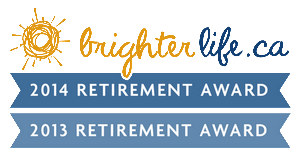The difference in approach between actively shaping your life and passively waiting for life to unfold is crucial in determining how when looking back over one's life. The choice interprets the outlook on the journey. In retirement, you are in control and you can decide if the journey through retirement will be shaped by you or by others.
Choosing to Go, Do, and Be:
This approach involves actively engaging with life, making decisions, taking risks, and pursuing opportunities. When you look back at your life, you'll likely find a sense of empowerment and control. The uncanny events, wild timing, weird coincidences, and chance encounters are seen as a result of your intentional actions and choices. You'll attribute your life's good fortune to the decisions you made, the risks you took, and the paths you forged. In this perspective, destiny is a product of your proactive efforts and the opportunities you create.
Choosing to Wait, Wish, and Hope:
This approach is more passive, characterized by waiting for things to happen, wishing for better circumstances, and hoping that fate will intervene positively. When reflecting on your life, you might express shock and dismay, attributing your experiences to destiny. In this case, the uncanny events, wild timing, weird coincidences, and chance encounters may be viewed as strokes of luck or misfortune, with destiny determining the outcomes. The lack of active participation in shaping your path can lead to a feeling of powerlessness and a sense that life's events are beyond your control.
In essence, the key difference lies in the level of agency and intentionality. Actively choosing to go, do, and be involves taking charge of your destiny, participating in the unfolding of your life, and embracing both the challenges and successes as outcomes of your choices. On the other hand, waiting, wishing, and hoping may result in a perception that life's events are predetermined by fate, leading to a sense of being carried along by circumstances rather than actively steering the course.
Ultimately, the way you engage with life influences not only the paths you took or will take, but also how you interpret and attribute meaning to the events that unfold. Embracing a proactive approach allows for a more empowered and intentional journey, shaping a narrative where you are an active participant in the creation of your destiny.
